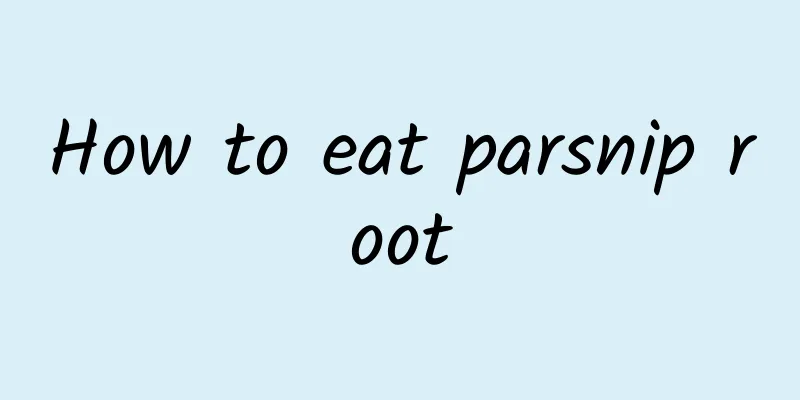How much do you know about the benefits of clove leaves?

|
As we all know, the lilac tree is full of treasures. Its flowers are fragrant and beautiful, and its leaves can be used as medicine or to make tea. When reading, you can pick some flowers to appreciate, make a pot of lilac tea, and read an essay. It sounds very poetic and picturesque. Take a sip and you will feel refreshed. But did you know that making tea with lilac leaves has side effects? Therefore, you cannot drink it in large quantities, but in moderation. So, what are the effects of lilac leaves? And what are the effects and side effects of brewed tea? We will answer your questions one by one below. 1. Medicinal effects of clove leaves 1. Clove leaf is a special medicinal material in Northeast China. It has broad-spectrum antibacterial and antiviral effects and is a Chinese medicine with great development potential. 2. Clove: Properties: warm Taste: pungent Meridians: spleen, stomach, lung, kidney Functions: warms the middle and reduces adverse effects, nourishes the kidney and aids yang. Indications: Used for spleen and stomach deficiency and cold, hiccups and vomiting, poor appetite, vomiting and diarrhea, cold pain in the heart and abdomen, and impotence due to kidney deficiency. Toxicity: None Contraindications: Not suitable for use with Curcuma. Patients with fever or internal heat due to yin deficiency should not take it. 3. The medicinal one is Eugenia caryophyllus, which is native to the Rugu Islands and Malay Archipelago in Indonesia and Zanzibar Island in Tanzania, Africa. These islands are internationally known as the "Lilac Islands". It is also cultivated in Guangdong and Guangxi of my country. Cloves can also be used to extract clove oil, and are also an important spice with high economic value. Lilac flowers, lilac branches, and lilac roots are all good medicines for treating diseases; cloves are pungent and warm in nature. It has the functions of warming the middle, warming the stomach and relieving adverse effects. It is used to treat hiccups, vomiting, nausea, diarrhea, cold pain in the heart and abdomen, hernia, ringworm, etc. Modern medical research has confirmed that the flower buds contain clove oil. The oil mainly contains eugenol, acetyleugenol, B-caryophyllene, methyl salicylate, chavicol and other ingredients. Therefore, it has antibacterial, anthelmintic and stomachic effects. Pharmacological test: Clove has antibacterial effect. Clove oil and eugenol have an inhibitory effect on pathogenic fungi when used in a concentration of 1:800~1:1600. In addition, it has anthelmintic and stomachic effects. Commonly used folk prescriptions: 1. Grind 15 cloves into powder, add sugarcane juice and ginger juice to make pills, hold in the mouth and swallow, to treat vomiting in the morning and evening. 2. Take 15 grams of cloves and 30 grams of cinnamon, mash them into powder, and take 3 grams of it with hot wine before meals to treat long-term heart pain. 3. Take 1.5 grams of clove powder and ginger soup to treat injuries caused by eating crabs. 4. Add 70% alcohol to 100 ml of 15 grams of cloves, soak for 48 hours, remove the residue, and apply to the affected area 3 times a day to treat ringworm. (II) The role and efficacy of clove tea 1. Warm the stomach Clove tea is good at warming and nourishing the stomach. Clove warms the spleen and stomach and relieves qi stagnation. It is especially good at relieving adverse reactions. Therefore, it has the functions of warming the middle and dispersing cold, relieving adverse reactions, stopping vomiting, and stopping hiccups. It is an essential medicine for treating stomach cold and vomiting. It is often used together with persimmon calyx, Codonopsis pilosula, ginger, etc. to treat vomiting and retching due to deficiency and cold, such as Clove Persimmon Calyx Decoction (Zhengyinmaizhi); it can be used together with Atractylodes macrocephala and Amomum villosum to treat vomiting, diarrhea and poor appetite due to deficiency and cold of the spleen and stomach, such as Clove Powder (Shenshi Zunshengshu); it can be used together with ginseng and Patchouli to treat nausea and vomiting during pregnancy. It also contains uterine contraction components, is easily soluble in water and ethanol, and is not easily soluble in ether, petroleum, chlorine, benzene and acetic acid. Cloves can be taken orally or made into a thick paste and applied to the navel to treat stomach cold and vomiting during pregnancy. 2. Freshen breath Clove was a good medicine used to remove bad breath in ancient times. The reason why clove can remove bad breath is that its fragrance can suppress the bad smell in the mouth. Of course, this is related to its ability to remove stomach cold. Many people think that bad breath is caused by stomach heat. In fact, bad breath caused by stomach heat is only one type, and most of the time it occurs in people with stomach heat, food accumulation, etc. Recurrent bad breath is often caused by stomach cold. This type of bad breath can be quickly eliminated by drinking more clove tea and avoiding cold food. Women who drink Yishutang clove tea regularly can eliminate bad breath and bring fresh breath. 3. Can inhibit Helicobacter pylori The clove oil and eugenol unique to clove tea can effectively inhibit the activity of Helicobacter pylori, thereby achieving the effect of inhibiting and killing Helicobacter pylori. You should know that most gastritis patients contain Helicobacter pylori, and the massive reproduction of Helicobacter pylori may induce gastric cancer. Therefore, it is important to kill Helicobacter pylori. Drinking 3-5 grams of clove tea every day is very good for the stomach. What are the side effects of clove tea Overdose of clove tea can cause poisoning reactions, manifested as difficulty breathing, lower limb weakness, gastric bleeding, and liver enlargement; in severe cases, lower limb paralysis, drowsiness, urinary incontinence, hematuria, etc. Treatment and rescue methods: gastric lavage, catharsis, and oral administration of medicinal charcoal suspension. Intravenous infusion, plus vitamin C. |
<<: Is Chinese medicine effective in treating colitis?
>>: What are the effects of Dendrobium?
Recommend
Huoxiangzhengqi soft capsule
Medicine is very common. Different medicines have...
Rare! New discovery by Chinese observatory! Received photons from 2 billion years ago!
On the evening of October 9, 2022, Beijing time, ...
Emei Scutellaria baicalensis's efficacy and function
Nowadays, our living standards are constantly imp...
Vanishing birdsong: How to track the impact of climate change on the region's soundscape?
The International Department of the China Biodive...
You can use your phone now, all thanks to a sentence he said 50 years ago
On March 24, 2023, American scientist and entrepr...
The role of fear
Detail of August Macke's Farewell. © Wikipedi...
Eating lotus root in spring is definitely not ugly! How to choose and eat it is quite particular
Lotus is a plant native to China. As a part of lo...
Who is not suitable to eat Lingzhi powder?
Ganoderma lucidum is a very precious Chinese herb...
The efficacy and function of Amaranthus aurantii
We know that there are many kinds of Chinese medi...
Designed in the late 1950s, the Blackbird is an absolute miracle in aviation history.
© National Air and Space Museum Leviathan Press: ...
Talking nonsense when confused: Is this a "mysterious performance" in the brain theater?
Audit expert: Chen Mingxin National Level 2 Psych...
[Fat Bear Science] Take you to count the carcinogens hidden around you in life
Fat Bear: Grandma, haven't you finished the n...
The effects and functions of star fern
The medical value of star fern is beyond our imag...
Benefits of Codonopsis, Red Dates and Wolfberry Wine
Codonopsis, a kind of medicine, red dates, a kind...









